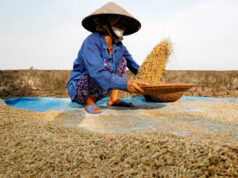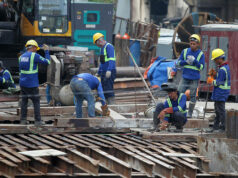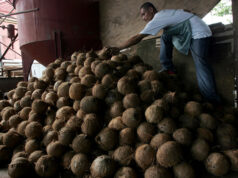The Philippine government has applied to the World Bank for a loan of $300 million to help local governments deal with the pandemic at community level, according to loan documents seen by BusinessWorld.
According to the World Bank’s documentation, the proceeds will provide additional funding for the $530.47-million National Community-Driven Development program of the Department of Social Welfare and Development (DSWD).
The bank expects its Board to act on the proposed agreement on Dec. 15.
The World Bank previously lent $479 million for the program launched in February 2014 .
“The proposed additional loan will scale up the impact (of the program) in particular by supporting the government in implementing a community-based response to the impact of the COVID-19 pandemic in 676 poor municipalities. The AF (additional financing) operation will support 676 poor municipalities and facilitate the institutionalization of (community-driven development) in local development planning,” according to a summary of the application provided by the bank.
It said the loan will also give the DSWD more time and resources to promote community-driven development and post-disaster management in the municipalities.
“The proposed (loan) is fully aligned with the bank’s twin goals of eradicating extreme poverty and promoting shared prosperity by enabling poor and vulnerable communities to identify and manage their responses to the impact of COVID-19 pandemic through participatory and transparent mechanisms,” it said.
The bank expects the program to boost the capacity of local government units to implement programs and deliver key public services.
The loan is broken down into three parts: $231 million to provide planning and investment grants to 676 poor municipalities hit hard by the pandemic; $44 million for the training of staff, officials and volunteers in community-driven development and disaster response; and $25 million to fund managers for the program at the regional and national levels.
The Philippines’ vulnerability to natural disasters and climate change, specifically to typhoons, flooding, drought, rising sea levels. and landslides, have been affecting its economic development, it said.
“Communities, especially those in the poorer rural and remote areas, rely on natural resources and resilient infrastructure for their livelihood and access to markets as well as to basic social services. It is critical to provide support for strengthened adaptation and social resilience at the community level to ensure communities are better protected from and prepared to deal with climate variability,” the bank said.
The World Bank has extended $1.2 billion worth of budget loans and $470 million in project financing to help the government respond to the pandemic. — Beatrice M. Laforga



